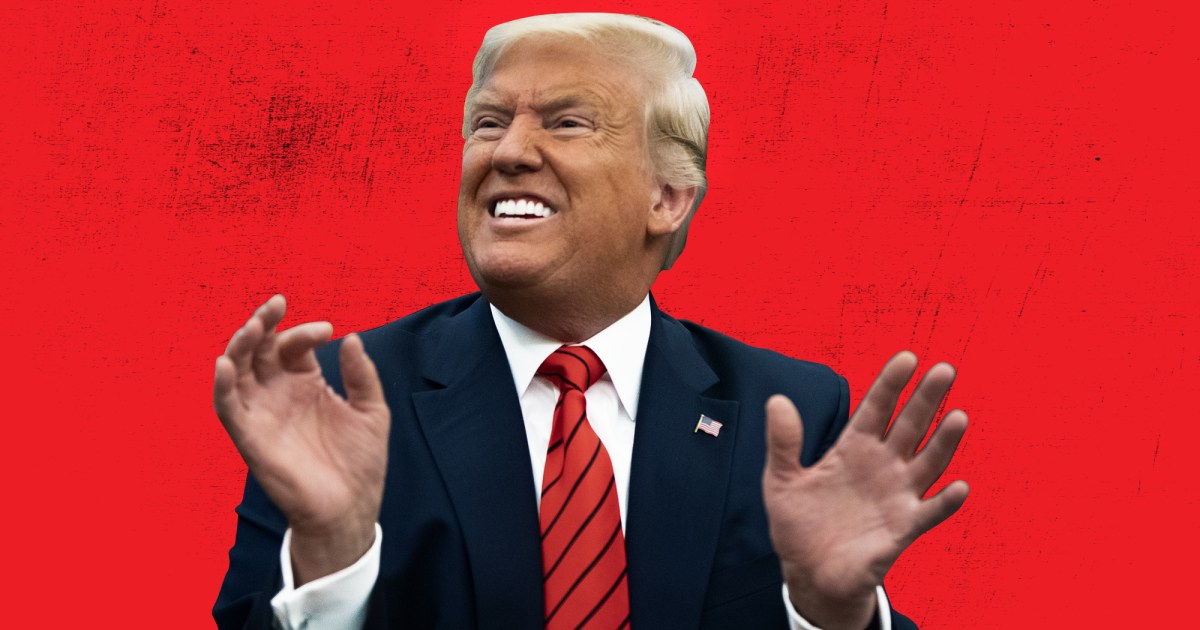Just finished reading Dennis Kucinich's article that shares the name of this thread, thought it was quite good. Quoting the introduction and conclusion of his article below:
**
America is heading towards a Constitutional crisis, with the President of the United States, on his own instance, federalizing the California National Guard and sending in the Marines to support the quasi-military fugitive operations of Immigration and Customs Enforcement (ICE), rounding up thousands of Angelenos in one of the most densely populated Hispanic and Latino counties in America—Los Angeles.
The President was not asked by local officials for help in controlling violent protests, perhaps because Los Angeles city and county together employ nearly 20,000 sworn law enforcement officers, trained and experienced in handling ambiguous and confrontational situations.
Yet, the President chose to bypass local authority, sending in 4,000 Guardsmen and 700 Marines under the authority of Title 10 of the U.S. Code, dealing with the Armed Forces, Chapter 13, which defines military operations in an insurrection, a violent uprising against the government.
However, Article II of the U.S. Constitution, which established the Executive branch and the office of the President, did not confer unfettered domestic control. The President’s power as Commander-in-Chief is limited. It does not extend to military deployment inside the United States except under sharply restricted circumstances.
The President is strictly prohibited from using active-duty federal troops for local law enforcement, arrests, or searches under the Posse Comitatus Act of 1878, unless explicitly authorized by statute. No such statutory authorization has been invoked.
(‘Posse Comitatus’ derives from Latin, “the power of the county,” relating to the ability of a Sheriff to call upon local, able-bodied citizens to assist in law enforcement.)
The controlling statute—the Insurrection Act of 1807—was passed to enable the federal government to use troops when there is an attempt to overthrow the government or when state authorities cannot or will not act to enforce the law. Where is the insurrection? Where is the rebellion? Mass protest and public unrest, however widespread or inconvenient, do not meet the legal threshold.
The Tenth Amendment to the U.S. Constitution reads:
“The powers not delegated to the United States by the Constitution, nor prohibited by it to the States, are reserved to the States respectively, or to the people.”
This state–federal power-sharing amendment, a cornerstone of the Bill of Rights, was essential to the ratification of the Constitution on June 21, 1788. States became known, in the apocryphal words of Justice Louis Brandeis, “the laboratories of democracy.”
The modern reality is that while states function semi-autonomously, they are often starved of resources to perform the “laboratory” experiments, while enmeshed in federal-state partisan political battles and riven by federal pre-emption, a dilemma further detailed in the Columbia Law Review “The Myth of the Laboratories of Democracy,” by Charles W. Tyler and Heather K. Gerken.
Still the Tenth Amendment stands as a bulwark for states, particularly when it comes to controlling its own militia, the National Guard. The Tenth Amendment reserves to states the right to control their own National Guards, unless and until properly federalized.
By deploying troops without state consent, the President is overriding state sovereignty, undermining federal law and defying the foundational documents of the Republic.
If a governor objects to federalization, the burden is on the President to demonstrate, legally and constitutionally, why that state’s authority should be suspended over its affairs of public safety. The federal government must prove its case. Absent a collapse in law and order, the Insurrection Act cannot be used to mask political motives or suppress lawful protest.
The President’s use of the military in contravention of the Tenth Amendment is a direct assault on the structural integrity of the Union, a raw power grab.
It is not traditional political conflict, we are witnessing, it is the slow unraveling of the Republic. If authoritarian practices are unchallenged and become normalized, autocracy will transit to fascism, unless the federal courts, and ultimately, the U.S. Supreme Court intervenes quickly.
The moment harkens back to the cautionary words of Ben Franklin on September 17, 1787, uttered on the last day of the Constitutional Convention. When questioned by Elizabeth Willing Powell, a woman famous in Philadelphia social and political circles, “Well Doctor, what have we got, a republic or a monarchy?”
Franklin answered, “A Republic, if you can keep it.”
[snip]
In 2026 we will observe America’s 250th birthday. Let us honor the memory of our Founders and of those who gave their lives in defense of the principles of liberty, by celebrating the Spirit of Independence every day, committing ourselves to active citizenship which challenges at every turn any system of government or leader, or any law, which compromises our constitutionally guaranteed freedoms. It is this vigilance under which we must unite. It is this vigilance which guarantees the triumph of freedom.
**
Full article:

 kucinichreport.substack.com
kucinichreport.substack.com
**
The Untied States of America?
By deploying troops without state consent, the President is overriding state sovereignty, undermining federal law and defying the foundational documents of the Republic.
Jun 11, 2025America is heading towards a Constitutional crisis, with the President of the United States, on his own instance, federalizing the California National Guard and sending in the Marines to support the quasi-military fugitive operations of Immigration and Customs Enforcement (ICE), rounding up thousands of Angelenos in one of the most densely populated Hispanic and Latino counties in America—Los Angeles.
The President was not asked by local officials for help in controlling violent protests, perhaps because Los Angeles city and county together employ nearly 20,000 sworn law enforcement officers, trained and experienced in handling ambiguous and confrontational situations.
Yet, the President chose to bypass local authority, sending in 4,000 Guardsmen and 700 Marines under the authority of Title 10 of the U.S. Code, dealing with the Armed Forces, Chapter 13, which defines military operations in an insurrection, a violent uprising against the government.
However, Article II of the U.S. Constitution, which established the Executive branch and the office of the President, did not confer unfettered domestic control. The President’s power as Commander-in-Chief is limited. It does not extend to military deployment inside the United States except under sharply restricted circumstances.
The President is strictly prohibited from using active-duty federal troops for local law enforcement, arrests, or searches under the Posse Comitatus Act of 1878, unless explicitly authorized by statute. No such statutory authorization has been invoked.
(‘Posse Comitatus’ derives from Latin, “the power of the county,” relating to the ability of a Sheriff to call upon local, able-bodied citizens to assist in law enforcement.)
The controlling statute—the Insurrection Act of 1807—was passed to enable the federal government to use troops when there is an attempt to overthrow the government or when state authorities cannot or will not act to enforce the law. Where is the insurrection? Where is the rebellion? Mass protest and public unrest, however widespread or inconvenient, do not meet the legal threshold.
The Tenth Amendment to the U.S. Constitution reads:
“The powers not delegated to the United States by the Constitution, nor prohibited by it to the States, are reserved to the States respectively, or to the people.”
This state–federal power-sharing amendment, a cornerstone of the Bill of Rights, was essential to the ratification of the Constitution on June 21, 1788. States became known, in the apocryphal words of Justice Louis Brandeis, “the laboratories of democracy.”
The modern reality is that while states function semi-autonomously, they are often starved of resources to perform the “laboratory” experiments, while enmeshed in federal-state partisan political battles and riven by federal pre-emption, a dilemma further detailed in the Columbia Law Review “The Myth of the Laboratories of Democracy,” by Charles W. Tyler and Heather K. Gerken.
Still the Tenth Amendment stands as a bulwark for states, particularly when it comes to controlling its own militia, the National Guard. The Tenth Amendment reserves to states the right to control their own National Guards, unless and until properly federalized.
By deploying troops without state consent, the President is overriding state sovereignty, undermining federal law and defying the foundational documents of the Republic.
If a governor objects to federalization, the burden is on the President to demonstrate, legally and constitutionally, why that state’s authority should be suspended over its affairs of public safety. The federal government must prove its case. Absent a collapse in law and order, the Insurrection Act cannot be used to mask political motives or suppress lawful protest.
The President’s use of the military in contravention of the Tenth Amendment is a direct assault on the structural integrity of the Union, a raw power grab.
It is not traditional political conflict, we are witnessing, it is the slow unraveling of the Republic. If authoritarian practices are unchallenged and become normalized, autocracy will transit to fascism, unless the federal courts, and ultimately, the U.S. Supreme Court intervenes quickly.
The moment harkens back to the cautionary words of Ben Franklin on September 17, 1787, uttered on the last day of the Constitutional Convention. When questioned by Elizabeth Willing Powell, a woman famous in Philadelphia social and political circles, “Well Doctor, what have we got, a republic or a monarchy?”
Franklin answered, “A Republic, if you can keep it.”
[snip]
In 2026 we will observe America’s 250th birthday. Let us honor the memory of our Founders and of those who gave their lives in defense of the principles of liberty, by celebrating the Spirit of Independence every day, committing ourselves to active citizenship which challenges at every turn any system of government or leader, or any law, which compromises our constitutionally guaranteed freedoms. It is this vigilance under which we must unite. It is this vigilance which guarantees the triumph of freedom.
**
Full article:

The Untied States of America?
By deploying troops without state consent, the President is overriding state sovereignty, undermining federal law and defying the foundational documents of the Republic.





